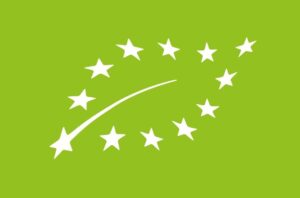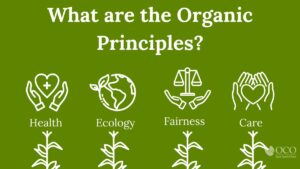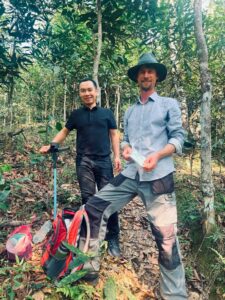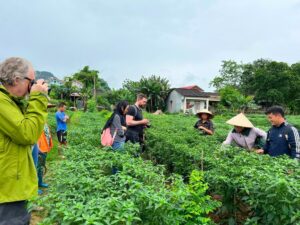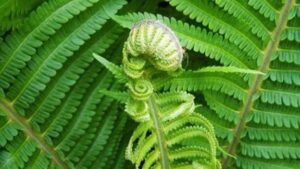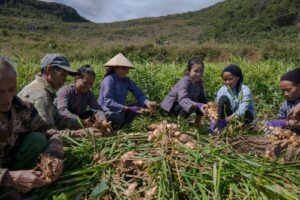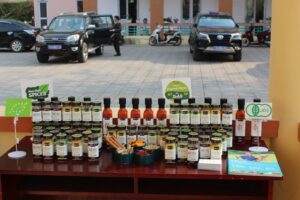Comprehensive Guide to Certification and Sustainable Farming Practices
Are you interested in understanding what the EU Organic Certification is and how organic production methods contribute to sustainable agriculture? Whether you’re a farmer, producer, exporter, or a health-conscious consumer, knowing about these standards is essential for ensuring product authenticity, safety, and environmental protection.
I. What is the EU Organic Certification?
The EU Organic Certification is a premium quality assurance that verifies agricultural and food products meet the European Union’s strict organic farming standards. This certification is essential for accessing the lucrative EU organic market and assures consumers that products are produced sustainably, naturally, and without harmful chemicals.
1. How does the EU Organic Certification work?
Achieving this certification involves a detailed approval process that includes:
- Rigorous inspections of farms, production facilities, and processing units.
- Verification that no synthetic fertilizers, pesticides, growth hormones, or genetically modified organisms (GMOs) are used.
- Ensuring livestock welfare and humane animal husbandry practices.
- Strict record-keeping and transparency throughout the supply chain.
- Ongoing compliance checks and periodic audits to maintain certification.
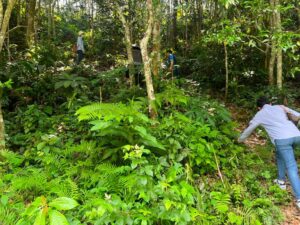
2. Benefits of EU Organic Certification:
- Facilitates access to one of the largest organic markets in the world.
- Builds consumer trust and brand reputation.
- Opens doors to premium pricing and export opportunities.
- Demonstrates commitment to environmental sustainability and health.
II. What are Organic Production Methods?
Organic production methods are eco-friendly farming techniques that prioritize natural processes and sustainability to produce healthy, chemical-free food. These methods are aligned with international organic standards and focus on maintaining soil health, biodiversity, and ecological balance.
1. Core Principles of Organic Farming and Production
- Soil Health and Fertility: Using compost, organic manure, cover cropping, and crop rotation to rebuild and maintain healthy soil without synthetic chemicals.
- Natural Pest Control: Employing biological control, resistant crop varieties, and natural pest deterrents rather than chemical pesticides.
- Biodiversity Conservation: Promoting diverse ecosystems, planting native species, and creating habitats to support beneficial insects and wildlife.
- Water Conservation: Implementing efficient irrigation and preventing chemical runoff to protect water resources.
- Animal Welfare: Ensuring animals are raised humanely, with access to outdoor space and organic feed, in accordance with organic standards.
- Sustainable Resource Use: Reducing carbon footprint through renewable energy and minimal waste practices.
2. Advantages of Organic Production Methods:
- Safer, healthier food free from synthetic chemicals and additives.
- Environmental benefits, including reduced pollution, soil erosion control, and climate change mitigation.
- Support for rural farmers and local communities.
- Increased demand and market value for organic products globally.
III. How DACE Implements Organic Certification and Sustainable Practices
DACE — a leading organic spice producer in Vietnam — has been committed to EU Organic certification and sustainable farming for over 11 years. We collaborate with thousands of smallholder farmers across 2,300 hectares, guiding them through organic farming practices that meet international standards.
Our production facilities are certified under multiple standards including EU Organic, USDA Organic, JAS, Naturland, and Fair For Life. These certifications demonstrate our dedication to producing high-quality, organic cinnamon, spices, and herbal products.
At DACE, we adhere to strict organic farming methods that promote ecological balance, conserve biodiversity, and ensure the health of the soil and ecosystem. Our focus is on creating a sustainable supply chain that benefits farmers, supports local communities, and delivers safe, authentic organic products to demanding markets like the EU, USA, Japan, South Korea, and beyond.
IV. The Future of Organic Agriculture and Certification
DACE’s vision is to position Vietnam as a global leader in organic spice and herbal product exports. We invest heavily in organic farming training, sustainable technology, and quality assurance systems to foster environmentally responsible agriculture that benefits both farmers and the planet.
Our goal is to continue expanding our certified organic product offerings while maintaining the highest standards of quality and sustainability. We believe that organic certification and eco-friendly farming practices are vital for promoting global health, protecting natural resources, and building a more sustainable future.
V. In Summary
- EU Organic Certification verifies compliance with Europe’s rigorous organic standards, enabling access to one of the largest organic markets.
- Organic production methods focus on eco-friendly farming practices that promote soil health, biodiversity, animal welfare, and sustainability.
- Companies like DACE exemplify commitment to organic certification, sustainable farming, and delivering high-quality organic spices and products globally.
Interested in learning more about certified organic products or sustainable farming practices? Contact DACE—Vietnam’s leading organic spice exporter—and join us in supporting eco-friendly agriculture and healthy lifestyles.
Reference link:https://agriculture.ec.europa.eu/farming/organic-farming/organic-production-and-products_en
